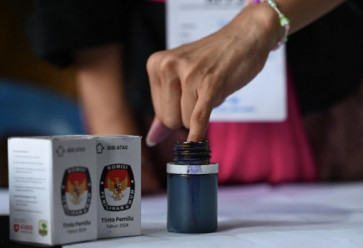New NCD, LDR rules to help banks
Major banks are looking forward to revised loan-to-deposit ratio (LDR) rules, which will add securities and negotiable certificates of deposit (NCD) to the calculation of the ratio, as they will help broaden the scope of liquidity and deepen the financial markets
Change Size

M
ajor banks are looking forward to revised loan-to-deposit ratio (LDR) rules, which will add securities and negotiable certificates of deposit (NCD) to the calculation of the ratio, as they will help broaden the scope of liquidity and deepen the financial markets.
Local banks have been faced with increasing LDRs, which means that loan growth has outpaced that of deposits, hence raising the need for broader funding sources. Funding sources or third party funds
(DPK) that are included in the LDR calculation currently only include savings, demand deposits and time deposits.
Both Bank Indonesia (BI) and the Financial Services Authority (OJK) are currently working to increase bank liquidity by broadening the funding sources for banks to include securities issuance or bonds, as well as NCDs, which are a tradable deposit certificate guaranteed by banks. The regulation is expected to be issued sometime in the first half of this year.
'It is highly essential that we have a new instrument option for liquidity, especially when you are faced with the problem of a shrinking liability market,' Standard Chartered Bank Indonesia managing director and financial markets head Prakash Subramanian KV told The Jakarta Post on Monday. Banks' liability includes its third party funds (DPK) or savings and deposits.
The NCDs can also help lengthen a bank's liability maturity profile, which is often dominated by short-term funding sources, as it would provide a tradable instrument with a longer maturity profile compared to savings, demand deposits and time deposits. NCDs cannot be redeemed before they mature.
The NCD regulation was issued by BI in October 1988, stipulating that a certificate could be issued with a minimum nominal value of Rp 1 million (US$78.74) and a maturity period of between 30 days and 24 months. However, many banks have dropped the NCD issuance practice because of a weak risk management system that led to several fraud cases in the past.
BI deputy governor Perry Warjiyo said that the central bank was looking forward to renewing the NCD trading and pricing mechanisms, while OJK commissioner on banking supervision Nelson Tampubolon said that it would determine the qualified issuing banks and oversee the NCD issuance process.
CIMB Niaga treasury and capital market director John Simon said the NCDs would provide another tool to deepen the existing interbank money market and ease tight liquidity among banks. Bank Negara Indonesia treasury head Bimo Notowidigdo hoped that the revised regulations would enable lenders to issue foreign-denominated NCDs with longer maturity period.









